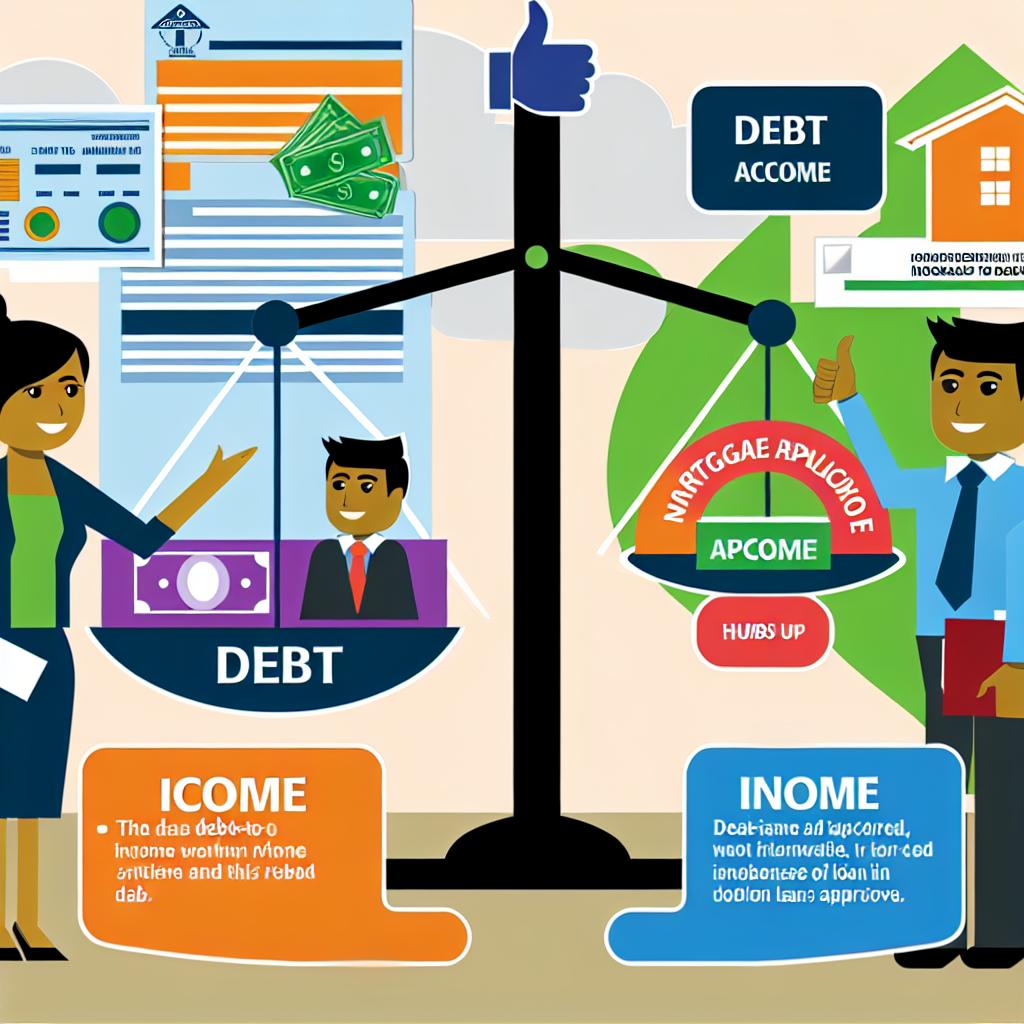
The Role of Debt-to-Income Ratio in Loan Approval
In the realm of personal finance, understanding the elements that affect loan approval is vital for both borrowers and lenders. Among these elements, the debt-to-income (DTI) ratio stands out as a crucial indicator of an individual’s financial health and repayment capacity. Comprehending the significance of the DTI ratio aids in making informed decisions during the loan approval process, benefiting both parties involved.
Understanding the Debt-to-Income Ratio
The debt-to-income ratio is a percentage that reflects how much of a person’s gross monthly income is directed toward paying debts. To arrive at this useful indicator, one divides their total monthly debt payments by their gross monthly income. For example, if someone faces a monthly debt obligation of $1,500 while their gross monthly earnings are $5,000, their DTI ratio would come to 30%. This ratio offers a snapshot of a person’s financial obligations relative to their income, providing a clear picture to lenders about the borrower’s financial commitments.
Importance in Loan Approval
During the loan approval process, lenders employ the DTI ratio to assess a borrower’s ability to manage additional debts. A lower DTI ratio is generally seen as favorable, as it implies a healthier balance between debt and income. This balance suggests a stronger capability to handle monthly loan payments without undue financial strain. Conversely, a higher DTI ratio may indicate that the borrower is already encumbered with substantial debt relative to their income. This situation could elevate the risk of default, making lenders more cautious about extending additional credit.
Lender Benchmarks
Lenders typically establish specific benchmarks for acceptable DTI ratios to regulate their lending practices. Although these benchmarks can vary widely based on the type of loan and the lending institution, a commonly accepted rule of thumb is that a DTI ratio of 36% or lower is perceived as favorable. In some cases, such as with mortgage loans, borrowers might receive approval with higher DTI ratios if they have compensating factors. These might include a strong credit score, significant down payment, or substantial savings. Therefore, it is essential for potential borrowers to verify the specific DTI ratio requirements with the lender in question to understand their chances of eligibility.
Impact on Loan Terms
Beyond determining loan eligibility, the DTI ratio can also influence the terms of the loan offered to the borrower. Those with a lower DTI ratio are often viewed as low-risk candidates. As a result, they may be offered more favorable loan terms, which can include lower interest rates and longer repayment periods. These terms reflect the lender’s confidence in the borrower’s ability to manage their debt. On the flip side, applicants with higher DTI ratios might be subjected to stricter loan terms. These could manifest as higher interest rates or requirements for additional collateral, which are mechanisms lenders use to mitigate risks associated with lending to higher-risk borrowers.
Strategies to Improve DTI Ratio
Enhancing one’s debt-to-income ratio can significantly improve the chances of loan approval and securing better loan terms. Here are some effective strategies:
Reducing Debt: Proactively paying down existing debt is a direct way to improve the DTI ratio. By reducing monthly financial obligations, individuals can remodel their financial profile to appear less risky to potential lenders.
Increasing Income: Another effective strategy involves boosting income. This can be achieved through a raise at one’s current job, taking on secondary employment, or exploring new income streams such as freelance work or investment income.
Avoiding New Debt: Prior to applying for a loan, it is advisable to avoid incurring new debts. This precaution helps maintain a favorable DTI ratio, keeping one’s financial picture as clean and attractive as possible for lenders.
Implementing these strategies not only enhances financial stability but also enhances the borrower’s appeal in the eyes of potential lenders. The goal is to present oneself as a responsible borrower with a strong capacity to manage financial obligations effectively.
Conclusion
The debt-to-income ratio acts as a pivotal factor in the loan approval process, offering insight into a borrower’s financial management skills and risk level. By understanding how this metric is employed in decision-making processes, individuals are better equipped to make strategic changes that can enhance their loan eligibility and improve the terms ofthe loans they are offered. Proactively managing one’s debts and income levels can significantly strengthen one’s financial standing and prospects for securing favorable loan terms. For prospective borrowers, attention to the DTI ratio is an important step towards positively impacting their financial future. In a financial landscape where creditworthiness is key, using the DTI ratio as a guideline not only prepares individuals for successful loan acquisition but also fosters long-term financial health and stability.



